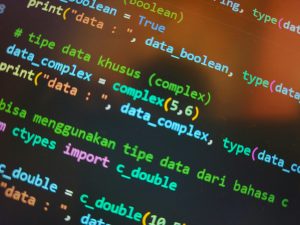‘Alarming’ slowdown in human development – could AI provide answers?
The Current Slowdown in Human Development: Is AI the Key to Advancement?
In recent years, observers have noted a concerning deceleration in various metrics of human development across the globe. This trend, described by some experts as ‘alarming’, raises essential questions about our future progress and what factors may contribute to the stagnation. While traditional approaches to addressing these issues have yielded mixed results, many are now turning to an unexpected ally: artificial intelligence (AI).
Understanding the Slowdown
Human development, as measured by indicators such as health, education, and economic prosperity, has historically shown a steady upward trajectory. However, recent reports indicate that this momentum may be faltering. For instance, numerous countries are experiencing stagnation in key areas such as literacy rates, life expectancy, and income growth. Factors contributing to this downturn include economic instability, social inequities, and environmental challenges.
As these issues compound, the stimulus for cumulative progress diminishes, leading to an urgent need for innovative solutions. This is where AI enters the conversation.
The Potential of Artificial Intelligence
Artificial intelligence, with its capacity to analyze massive datasets and identify patterns far beyond human comprehension, presents an array of possibilities for revitalizing human development. From enhancing educational tools to streamlining healthcare services, the applications of AI are vast and varied.
-
Revolutionizing Education: AI can personalize learning experiences, address the unique needs of individual students, and help educators identify students who may be struggling. By utilizing AI-powered platforms, educators can provide tailored tutoring, adaptive learning paths, and instant feedback, thus improving overall educational outcomes.
-
Transforming Healthcare: In the medical realm, AI has already begun to transform how we diagnose and treat diseases. Predictive analytics can provide insights into patient health trends, facilitate early intervention, and enhance resource allocation within healthcare systems, ultimately boosting life expectancy and quality of care.
-
Driving Economic Growth: From automating routine tasks to optimizing supply chains, AI can enhance productivity across different industries. By allowing human workers to focus on more complex and creative challenges, technology can stimulate economic growth and improve livelihoods.
Challenges and Ethical Considerations
While the potential benefits of AI are noteworthy, it is essential to acknowledge the accompanying challenges. The deployment of AI technologies raises ethical questions about privacy, job displacement, and bias in algorithms. Addressing these concerns will be fundamental in fostering inclusive growth around AI’s implementation.
Moreover, as AI perpetuates the digital divide, efforts must














1 comment